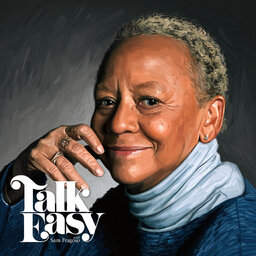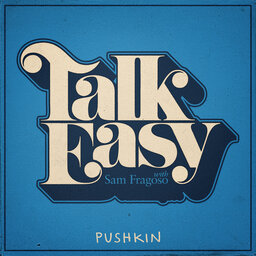Talk Easy in 2024: A Mixtape
It’s been a year. And while we’re not quite done with it (3:15), we wanted to take a moment to celebrate some of our favorite episodes and guests from 2024.
On the front half, we revisit passages from actor-turned-director Dev Patel (5:45), the legendary Francis Ford Coppola on Jacques Tati and failure (11:45), filmmaker Ava DuVernay on the state of Hollywood (17:47), and Dr. Seema Jilani on her work in Gaza (26:36).
On the back end, Abbi Jacobson’s interview with Sam (35:05), NYT reporter Astead Herndon on why the 2024 election was not inevitable (42:47), and national treasure Julia Louis-Dreyfus (“Wiser than Me”) on perseverance and posterity (49:55). Plus, a Joker ending (1:08:00).
What was your favorite from the past twelve months? Write us below or say hello at sf@talkeasypod.com.
In 1 playlist(s)
Talk Easy with Sam Fragoso
Talk Easy with Sam Fragoso is a weekly series of intimate conversations with artists, activists, and…Social links
Follow podcast
Recent clips

The Year of Actor Sebastian Stan (‘The Apprentice’)
1:16:35

Remembering Poet Nikki Giovanni
44:21

Host Padma Lakshmi (‘Taste the Nation’) is Just Getting Started
53:33
 Talk Easy with Sam Fragoso
Talk Easy with Sam Fragoso